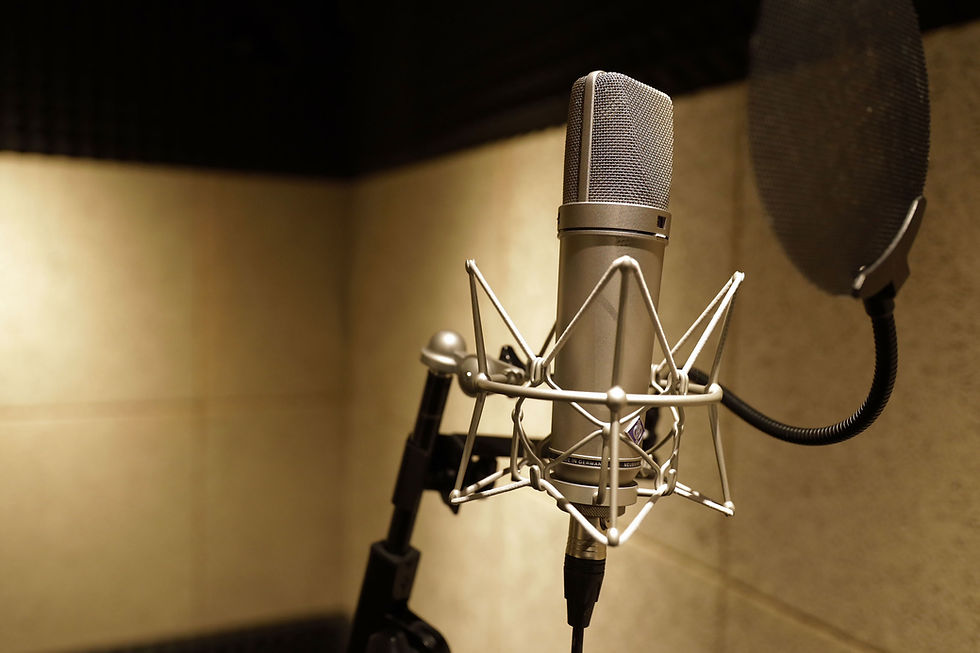After the break. Lazy podcast language
- david003464
- Oct 30, 2024
- 3 min read
Updated: Dec 10, 2024

I believe it is true that once you have worked in radio, you are no longer a 'listener' in the truest sense. Once you have been 'inside' the studio and worked in the industry your prism (or ear) changes. That means that often you worry about things that the 'listener' does not notice. In news bulletins this can mean cliches and phrases that are lazy and boring. Listeners do not really care if you say 'death toll', but as a News Editor it used to really irritate me. I banned the words and instead asked newsreaders to have scripts where they spoke like normal people, not like news cliche machines.
The truth is though, that most people would not notice if you said death toll on a big story. In reverse, sometimes the things we think are cool and sound great, annoy many listeners. Talking over intros and up to the vocal was a 'skill' we loved to hone as young presenters, but to most people listening it was quite irritating. It is something that is a little old fashioned now.
However, there are things that are important, even if listeners do not notice. One example of this is the 'after the break' habit that still exists in radio but is now really common in podcasting. So many presenters or hosts are fixated with it and every time I hear someone say 'after the break' it irks me. Why flag the fact that a set of adverts are coming up? In radio it means you may tune away and go to another station and in podcasts it means you instantly hit skip. And because adverts in podcasts are not guaranteed in those gaps, the presenter often ends up teeing something up that doesn't happen.
It is annoying because it is so unnecessary. Much better to tease content. Create a simple link that invites the listener to stay with you, stopping them tuning away or pressing skip too many times in fear of missing out. Call it the FOMO link. A simple example for a rock station recently would have been "On the way the band whose lead singer was caught on film helping to save a woman's life". Now many people know the story about Jon Bon Jovi, but many do not and they may want to listen to find out who it is. In podcasts you can simply tease the content that's coming in a similarly creative way.
You could also just be honest and say something like; "on the way we have more on the race for the White House, but first we have some information to share, which helps us continue to make this podcast available for free". When more and more content is being put on subscription channels or behind a paywall, it's a reminder that adverts allow us free access to so much content.
Of course, many podcast hosts are not radio presenters and certainly not from commercial radio where teasing the listener is an art and critical to building 'hours' of listening. Getting someone to stay with your show/station for more time and thus more adverts is vital. The more 'hours' you get in the Rajar surveys the better it is. Even more so than number of listeners. It is up to producers to remind the hosts that a simple change of language or a more creative link could make a difference.
Sadly I even hear this type of link on radio. Even saying 'on the way we have U2' is pretty lazy. That is hardly inspiring me to stay tuned is it? A change of mindset and a bit of creativity can make a difference. The listener might not notice the change in language, but it is almost certain that their behaviour and interaction (involvement) will change.









Comments